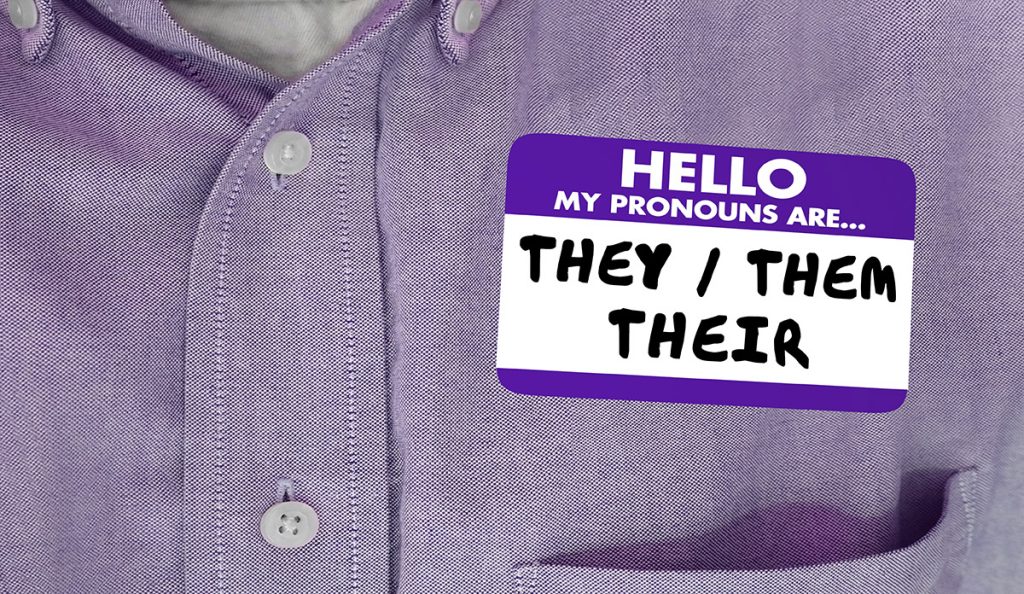
People are using “they/them” pronouns more often according to a new study by the University of North Carolina at Chapel Hill.
Led by UNC-Chapel Hill researcher Jennifer E. Arnold, Ph.D., the new research paper published on April 14 in Glossa Psycholinguistics provides the first evidence of how people use “they/them” when talking about a specific person in a spoken storytelling context.
“Within the last decade, people have started to use ‘they’ as a personal pronoun, often because they identify as nonbinary or gender nonconforming,” said Arnold, a professor of psychology and neuroscience in UNC’s College of Arts and Sciences. “This usage is called non-binary ‘they.’ This change is new, and it is not fully understood how our mental language system is changing as a result.”

This project addresses an ongoing change in the English language regarding pronouns. People have used “they” as a singular pronoun for centuries, but it was always in a context where the reference wasn’t specific and known.
Results from this study show that college-aged speakers are good at using nonbinary “they” – they used it in the same conditions as they used binary “she” and “he” pronouns, and no less frequently. This finding establishes that cognitively, the same process applies to the selection of pronouns and names for both binary and nonbinary pronouns, showing that the new usage is being adopted into the existing pronoun system.
No other study has provided data on how people naturally use this form in a spoken storytelling context. The findings will help people understand how the language is changing and understand the natural process of developing competency with this new form.
“Current teaching materials may not acknowledge this form, but given that young people are already using it, it must be taken into account in educational settings,” Arnold adds.
Read the published article in Glossa Psycholinguistics here. To learn more about current research efforts on how the human cognitive system handles the information processing requirements of communication, visit the Arnold Lab website here.
